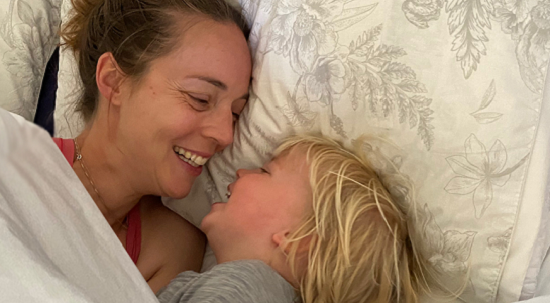National survey to measure COVID-19 impacts on Australian families
Media release
Australia's COVID-19 social distancing and isolation measures are triggering dramatic lifestyle changes for families and individuals across the country. A new nationwide online study by Deakin University is being launched today to measure the emotional and mental health impacts of these measures on Australian families during the pandemic, and to apply any findings that can increase the resilience of Australians today and in the future.
A team of 20 researchers at Deakin’s Centre for Social and Early Emotional Development (SEED) is undertaking the population-based, longitudinal 'COVID-19 Pandemic Adjustment Survey'.
Deakin's Dr Elizabeth Westrupp, clinical psychologist and senior lecturer at SEED, who is leading the project, said the SEED team is calling for more than 2000 volunteer families across the country to go to https://pandemicstudy.com/ to learn more and register.
"Australian families from Cairns to Perth are experiencing unprecedented changes and this online, longitudinal survey will see us investigate the week-by-week impacts of social distancing and other measures," Dr Westrupp said.
"Crises from the Christchurch Earthquakes and the US September 11 terrorist attacks, lead to increases in mental health problems and family violence, but COVID-19 is unique and likely to cause chronic family stress. We know there are risks for those families living with chronic stress and social isolation, and this study can provide timely information and tools for successful clinical and public health interventions.
"By answering our questions on parent and child mental health and wellbeing, and also sleep, physical activity, social support, isolation, couple conflict, and parenting; you'll be helping other Australian families in need."
Participants complete an initial 20-minute online survey, followed by a 10-minute survey each fortnight for six months. Parents with children aged between 0 and 18 are being actively sought, so the team of experts can monitor their diverse life experiences in the coming months.
Professor Craig Olsson, Director of SEED and an investigator for the study, said a population-representative sample of 2000 families will give researchers the clearest possible picture about how families are adapting to the crisis, and give government the clearest possible advice on how best to support them.
"It's important we understand how the pandemic is affecting families right around Australia, including those in rural, remote and regional areas, as well as in our cities. We need to know the impact for families facing a range of different circumstances," Professor Olsson said.
The SEED Centre conducts world-leading research on social development and its origins in early emotional life – aiming to promote emotional health, from pregnancy through to adulthood and into the next generation.

